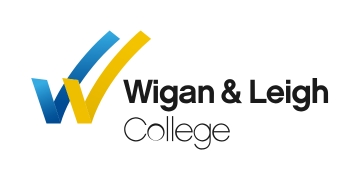At the Social Mobility Commission, we’ve consistently highlighted two issues holding back progress: policy churn and poor quality “evidence” guiding practice.
We are not alone in recognising this. Professor Frank Dobbin has written extensively about how widely accepted equalities initiatives often lack evidence and can even backfire. Education faces a similar challenge.
‘Deschooling’ disaster
A clear example is Knowsley’s secondary schools rebuilding programme in 2005. Backed by £157 million from Building Schools for the Future, education leaders opted for a radical redesign of the school environment to boost outcomes. Eleven Merseyside schools were replaced by seven new ones featuring no classrooms, open-plan learning zones, project-based learning, one-to-one supervision and teachers rebranded as “progress leaders”. Perhaps predictably, it failed. Chaos ensued, learning suffered. And Knowsley remained bottom of the GCSE ‘league table’.
Trauma-informed practice (TIP) is another educational approach being implemented without sufficient supporting evidence. While advocates cite fewer suspensions, improved teacher confidence and modest academic or attendance gains, most studies are small, qualitative and descriptive.
TIP troubles
TIP is often introduced alongside other whole school or college reforms, making it hard to isolate its true impact. Few long-term, peer reviewed evaluations or randomised control trials exist – hence the need for caution.
Being open-minded about new ideas is vital, but healthy scepticism is just as important and an uncritical embrace of TIP ideas may prove counterproductive. “Trauma informed” is so loosely defined that it can mean almost anything. If all behaviour is seen as trauma-driven, then behaviour management is compromised. This overlooks a simple truth: some people find it fun to break the rules – and teenagers like to test boundaries.
TIP also lacks an underlying theory of learning and fails to recognise that learning together in larger groups requires shared norms. Otherwise, teaching, learning and assessment – along with safety and wellbeing – become unmanageable.
Knowsley’s “deschooling” architects obviously had good intentions. But radical reform without due care and risk management meant they delivered an expensive failure that was paid for by taxpayers and, ultimately, by local families. Pupils from those schools are now aged 31 to 36. Today, 26.2 per cent of Knowsley’s adults have no qualifications (compared with 18.2 per cent nationally). And only 23.8 per cent have a degree level qualification (compared with 33.8 per cent for England and Wales).
Underperformance
The UK faces a serious problem of underperformance at school. We urgently need a solid, evidence-based consensus on how to tackle it. But this is something both simpler and more complex than it first appears.
Some places, such as London, have made substantial progress. Twenty years ago it was the laggard, and now it leads. Yet others remain stuck. Local authority data shows the same places – tending to be in post-industrial and coastal towns – consistently at the bottom.
Our Innovation Generation report argued that addressing this geographical unevenness should be a national priority. London’s success is attributed to many things, but it owes much to the foundations of consistent behaviour management and strong pedagogy, which have too often been ignored or poorly implemented elsewhere.
There’s also a tendency to believe that schools and colleges should be able to solve every societal problem, which underpins approaches such as “deschooling” and TIP. When results disappoint, we redesign the system to make it more accommodating. But in doing so, we often confuse the baby with the bathwater – and rarely improve outcomes.
Back to basics
Fundamentally we all learn in similar ways. So, while context matters, solutions which aren’t focused on the basics of behaviour and pedagogy are unlikely to work.
That does not mean, however, that these are sufficient on their own. London’s social mobility gains also stem from factors outside school and college. Family, community, neighbourhood, cultural aspiration and visible economic opportunities almost certainly play a role.
If we can better understand the factors that are present in places with strong outcomes, we can see more clearly what is missing in those that struggle.
I’ll explore this further in due course, but one thing is very clear. The solution will almost certainly not involve faddish, unproven approaches – especially when the risks of failure fall squarely on those who need the most help.












Learning maths, learning to behave in a pro social way, learning to respond empathically to trauma – all require people to be in an optimal brain state for learning, without which, we go into fight, flight, freeze, or flop too easily. Informing people about trauma is a necessary but not sufficient element of a holistic approach to education for the world and its challenges; in addition we need to understand how to build and repair relationships so people feel safe enough to to take on learning challenges – cf Vygotsky’s zone of proximal development. It’s not that trauma informed is ‘wrong’; it’s just incomplete; we need to understand the relational solution to the all too prevalent trauma in our young people and the systems around them.
After reading this, I’m left with a deep sadness, not because calls for clarity and evidence are not valid, but because the framing reflects a fundamental misunderstanding of what trauma-informed practice actually is.
This is not about excusing behaviour or abandoning shared norms. It’s about understanding the biology beneath behaviour and creating systems that are relational, developmental, and humane for everyone, is not just “those children.”
When we reduce trauma-informed practice to a vague policy trend or a threat to behaviour management, we miss the real paradigm shift it’s inviting: safety before behaviour, relationship before control.